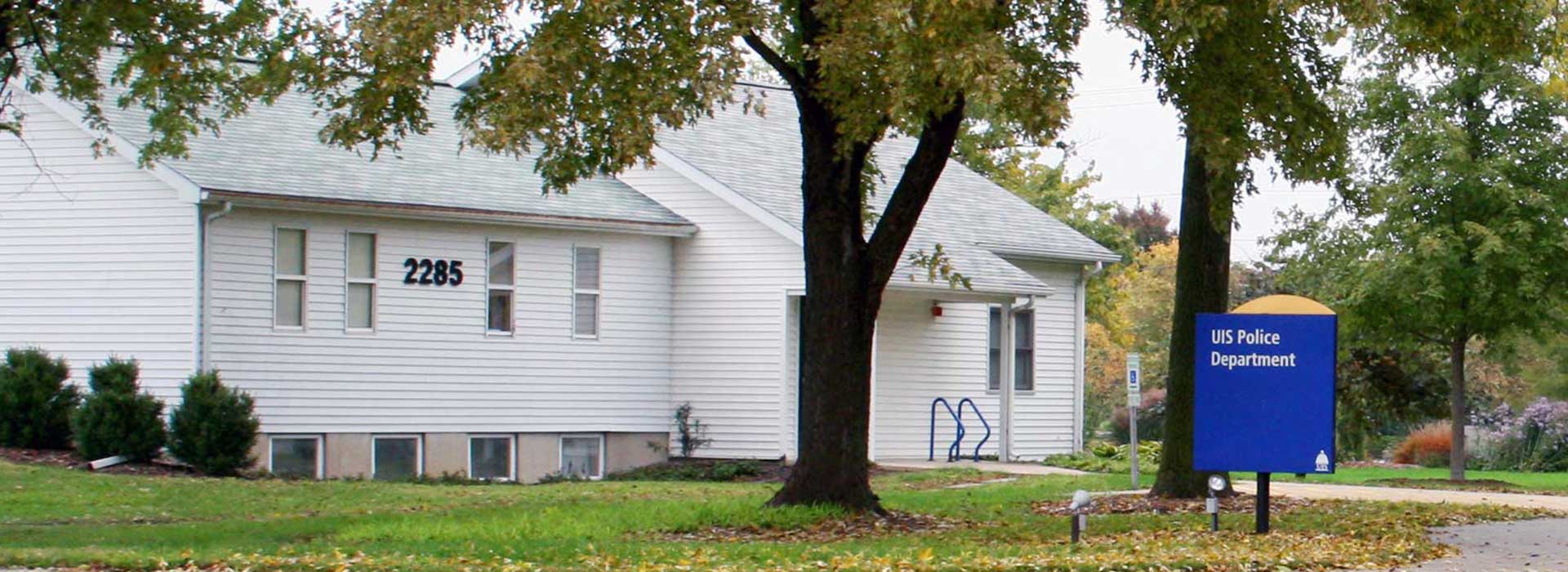The Jeanne Clery Act is a federal law that requires colleges and universities to report campus crime statistics, as well as promote crime prevention awareness to enhance campus safety.
Under the Clery Act, UIS is required to:
- Collect, classify and count crime statistics related to Clery-reportable crimes.
- Disseminate an Annual Security and Fire Safety Report to employees and students by every Oct. 1 containing the last three years of crime and fire statistics, and safety as well as security-related policies, procedures, and programs;
- Identify and train mandatory crime reporters, called Campus Security Authorities (CSAs);
- Issue timely warnings to the campus community when there are imminent, serious or continuing threats to the health and safety of students or employees;
- Maintain and make available a daily crime and fire log for public viewing; and
- Provide rights and options to survivors of Violence Against Women Act offenses (dating violence, domestic violence, sexual assault, and stalking)
The Jeanne Clery Disclosure of Campus Security Policy and Campus Crime Statistics Act, or Clery Act, is named in honor of Jeanne Clery, a 19-year-old college student who was assaulted and murdered in her campus dorm room in 1986.
UIS complies with the Clery Act by annually publishing the UIS Annual Security and Fire Safety Report (ASFSR). The ASFSR also includes policy statements regarding crime reporting, campus facility security and access, law enforcement authority, incidence of alcohol and drug use, and the prevention of/response to sexual assault, domestic or dating violence, and stalking.
Clery Act responsibilities:
- Students, employees and visitors are encouraged to promptly and accurately report all suspected crimes and significant emergencies or dangerous situations occurring on On-Campus Property, Non-campus Property, and Public Property to the UIS Police Department or the appropriate law enforcement agency, when the victim of a crime elects to, or is unable to, make such a report.
- For the purpose of making timely warning reports to the community and for inclusion in the annual statistical disclosure, Clery Act crimes should be immediately reported to the UIS Police Department or another Campus Security Authority.
- For the sole purpose of the inclusion of a Clery Act crime in the annual disclosure of crime statistics, victims or witnesses may report crimes to a Campus Security Authority on a voluntary, confidential basis, by withholding their personally identifiable information.
- Professional Counselors are encouraged, if and when deemed appropriate, to inform the persons they are counseling of any procedures to report crimes on a voluntary, confidential basis for inclusion in the annual disclosure of crime statistics.
- All campus units and divisions must maintain for seven (7) years all Clery Act-related documentation in accordance with the State Records Commission approved “Application for Authority to Dispose of State Records 13-41 Student Records Retention Schedule.”
- Clery Liaisons shall be responsible for providing the following information:
- Identifying and registering Campus Security Authorities (“CSAs”) within the unit/division;
- Registering specific locations used for accommodations (e.g., hotel, inn, hostel) where students go on overnight university-sponsored travel;
- Registering all Noncampus Property used by the unit/division.
Please review the Clery Liaison’s webpage for more details on these responsibilities.
Clery Act reportable crimes:
Criminal homicide (murder and non-negligent manslaughter, manslaughter by negligence)
Sexual assault (rape, fondling, incest, statutory rape)
Robbery
Burglary
Aggravated assault
Motor vehicle theft
Arson
Referrals or arrests for weapons law violations, drug abuse violations, liquor law violations
Hate crimes (reportable for the crimes listed above, plus: larceny-theft, intimidation, simple assault and destruction/damage/vandalism of property)
Domestic violence, dating violence, stalking
UIS has designated Campus Security Authorities who must report Clery crimes to the university in a timely manner. Visit the Campus Security Authorities Reporting page to learn more.
